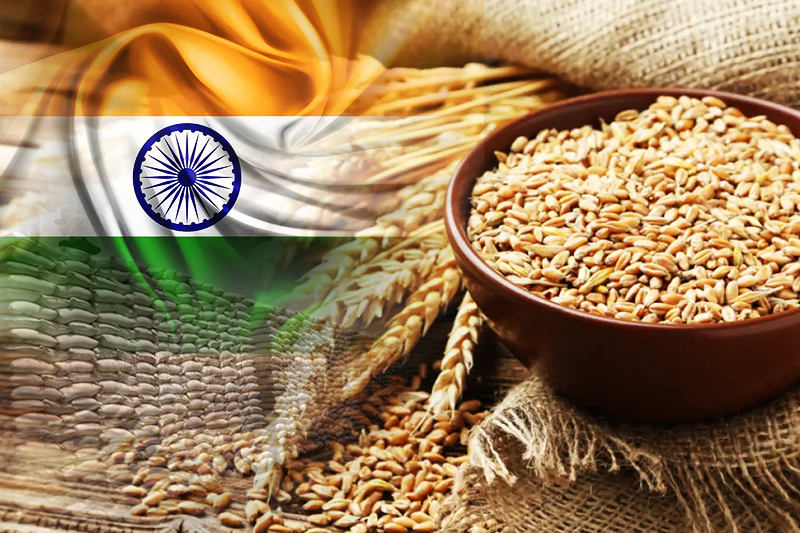India Sets Conservative Wheat Procurement Goal Despite Record Harvest Predictions for 2024-25

The Indian government has established a conservative wheat procurement target for the 2024-25 rabi marketing season, aiming for 30-32 million tonnes despite the Ministry of Agriculture’s projection of a record wheat production of 114-115 million tonnes for the 2023-24 crop year. This decision, spearheaded by Union Food Secretary Sanjeev Chopra in consultations with state food secretaries, marks a cautious approach following a period of lower-than-expected procurement levels.
With the Ministry of Agriculture forecasting a bumper crop, the decision to set a lower procurement target has raised questions. The government’s strategy appears to focus on balancing the Food Corporation of India’s stock, which has dwindled to an eight-year low, against the backdrop of recent procurement shortfalls. In the 2023-24 season, the government procured 26.2 million tonnes against a target of 34.15 million tonnes, significantly lower than the 44.4 million tonnes target set for the 2022-23 season, which saw only 18.8 million tonnes procured due to reduced production. This year’s conservative target reflects an attempt to stabilize the market and support Indian farmers while managing expectations in major wheat-producing states like Punjab and Madhya Pradesh.
In addition to wheat, the government has also outlined procurement targets for rabi paddy and coarse grains/millets at 9-10 million tonnes and 600,000 tonnes, respectively. This move aligns with the government’s broader agenda of crop diversification and nutrition improvement, emphasizing the importance of millets in the agricultural ecosystem. The emphasis on millets underscores a strategic shift towards sustainable agriculture practices and nutritional security, echoing global trends towards healthier and more diverse diets.
The procurement targets have implications for market dynamics, especially concerning wheat prices, which have seen a surge in the Food Corporation of India’s e-auction, reaching a 12-week high. Analysts anticipate limited gains in related commodity prices, like palm oil, due to a large soyabean crop and fluctuating demand patterns, particularly from China. The potential onset of La Nina weather conditions later this year could further influence market sentiments and price trajectories, presenting a complex scenario for policymakers and market participants alike.
As India navigates these challenges, the strategic setting of wheat procurement targets reflects a nuanced approach to ensuring food security, supporting farmers, and managing market stability. The government’s conservative stance, amidst optimistic production forecasts, underscores the intricacies of agricultural policy-making in a dynamic global environment. With an eye on the future, the balance between procurement goals and market dynamics will remain a critical area of focus for India’s agricultural sector.
Read also
Wheat in Southern Brazil Impacted by Dry Weather and Frosts
Oilseed Industry. Leaders and Strategies in the Times of a Great Change
Black Sea & Danube Region: Oilseed and Vegoil Markets Within Ongoing Transfor...
Serbia. The drought will cause extremely high losses for farmers this year
2023/24 Safrinha Corn in Brazil 91% Harvested
Write to us
Our manager will contact you soon



